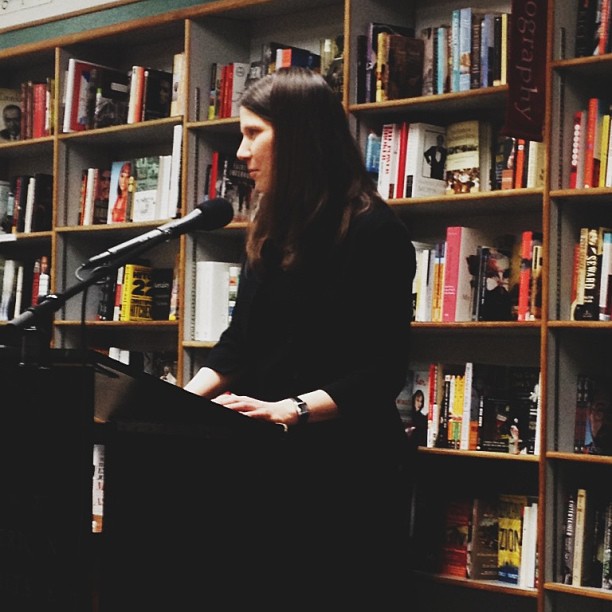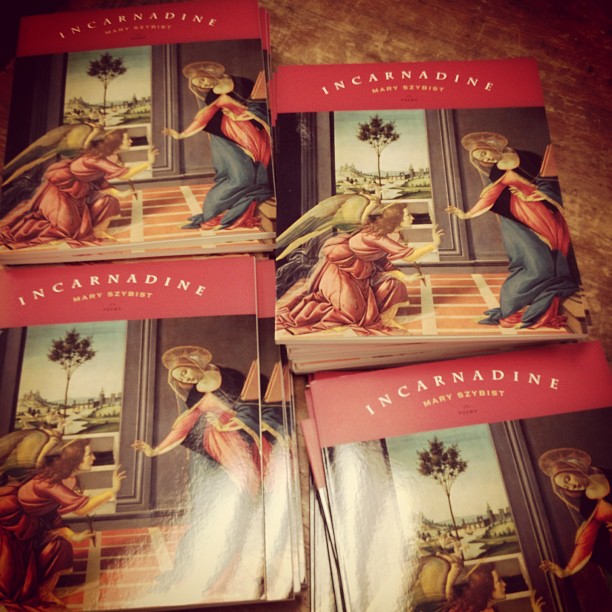By Denise Jarrott
Listen: Mary Szybist reading | Feb. 21, 2013
Often, the most telling part of a reading is right before it begins. Sometimes I am able to drag along my husband or a friend, but at this reading, I was alone in the front row, a space very few choose to sit. Since I usually have to sit somewhere near the front to get a good photograph, I am often placed in a very strange and awkward position.
From a lo

Whatever the reason, I was able to see how Szybist interacted with people as they arrived. There were the usual cheek-kisses as greetings that I see with former Workshop colleagues and friends, but there were also warm hugs between Szybist and people from the community, older and middle-aged, perhaps due to her former teaching position at Iowa City West High School. It was plain to see that Szybist was very much a part of Iowa City, in addition to the two years she spent in the Workshop.

Her first poem was a self-described "invocation of the muse", a plea to imaginary creatures taken from the language of a CPR manual. When one listens to Mary Szybist read, we cannot help but go with her to even the dark places: a woman throwing her children off a bridge in Portland, Oregon, a child eating the eyes out of fish, or the Cathars returning home after being subjected to torture, and the places of infinite beauty and light: girls assembling a puzzle of the Annunciation, ruminating on whether or not an octopus would love you, and the many incarnations of the news of miraculous birth. To listen is to utter, like the other Mary, "yes".